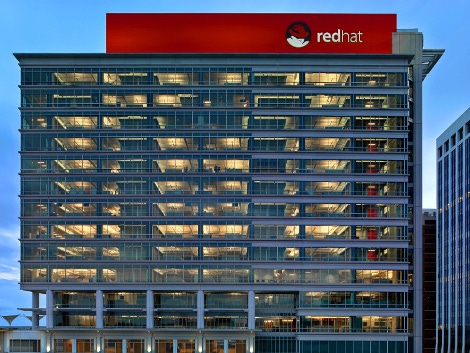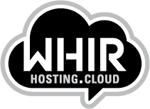Microsoft and Red Hat Sign Unlikely Deal to Support Enterprise Hybrid CloudMicrosoft and Red Hat Sign Unlikely Deal to Support Enterprise Hybrid Cloud
Red Hat Enterprise Linux will be preferred choice for enterprise Linux workloads on Azure


logo-WHIR
This article originally appeared at The WHIR
Microsoft and Red Hat announced a partnership that is a first for both companies on Wednesday, driven by customer demand and the rise of hybrid cloud. One of the key components of the agreement is Microsoft naming Red Hat Enterprise Linux as the preferred choice for enterprise Linux workloads on Microsoft Azure.
Also as part of the agreement, the companies will work together to provide cross-platform, cross-company support spanning Microsoft and Red Hat’s offerings, collocating support teams in Redmond initially. The partnership also includes interoperability between Red Hat CloudForms and Microsoft System Center Virtual Machine Manager and Microsoft Azure.
Developers will gain access to .NET technologies across Red Hat offerings,” giving developers the ability to build applications and include .NET services,” Paul Cormier, Red Hat executive vice president and president, Products and Technologies, said in a briefing. He called the partnership a “powerful win for the enterprise customer.”
“I think everyone knows that there is no doubt now that Linux is a key part of enterprise computing today,” Cormier said.
With “cloud at the center of Microsoft’s strategy going forward” the company sees its capabilities around hybrid cloud as a differentiation in the market, Scott Guthrie, EVP of the cloud and enterprise group at Microsoft said.
Throughout the webcast, both Guthrie and Cormier emphasized the choice and flexibility that hybrid cloud provides. Hybrid cloud adoption is set to triple over the next few years, according to a recent report.
In a Red Hat blog post, Cormier said: “Both Red Hat and Microsoft are key players in this new, hybrid cloud reality. Today, it is incredibly likely that where you once found ‘Red Hat shops’ and ‘Microsoft shops,’ you’ll find heterogeneous environments that include solutions from both companies.”
“We heard from customers and partners that they wanted our solutions to work together – with consistent APIs, frameworks, management, and platforms. They not only wanted Red Hat offerings on Microsoft Azure, they wanted to be able to build .NET applications on infrastructure powered by Red Hat Enterprise Linux, including OpenShift, Red Hat Enterprise Linux Atomic Host, and Red Hat Enterprise Linux OpenStack Platform.”
“This partnership is a much more comprehensive partnership than we have with any other public cloud providers,” Cormier said in the webcast. “We never would have thought about this [partnership] 14 years ago when we started RHEL [Red Hat Enterprise Linux], but our customers wanted this. We realized we had a common goal to satisfy customers.”
In the coming weeks, Microsoft Azure will become a Red Hat Certified Cloud andService Provider, which enables customers to run RHEL applications and workloads on Azure. In the coming months, Microsoft and Red Hat plan to provide pay-as-you-go RHEL images in the Azure Marketplace, supported by Red Hat.
Red Hat CloudForms customers will be able to managed RHEL on both Hyper-V and Microsoft Azure, with support for managing Azure workloads from Red Hat CloudForms to be added in the next few months.
Developers will have access to Red Hat offerings, including Red Hat OpenShift and RHEL, jointly backed by Microsoft and Red Hat. According to the announcement, RHEL will be the primary development and reference operating system for .NET Core on Linux.
This first ran at http://www.thewhir.com/web-hosting-news/microsoft-and-red-hat-sign-unlikely-deal-to-support-enterprise-hybrid-cloud
About the Author
You May Also Like







